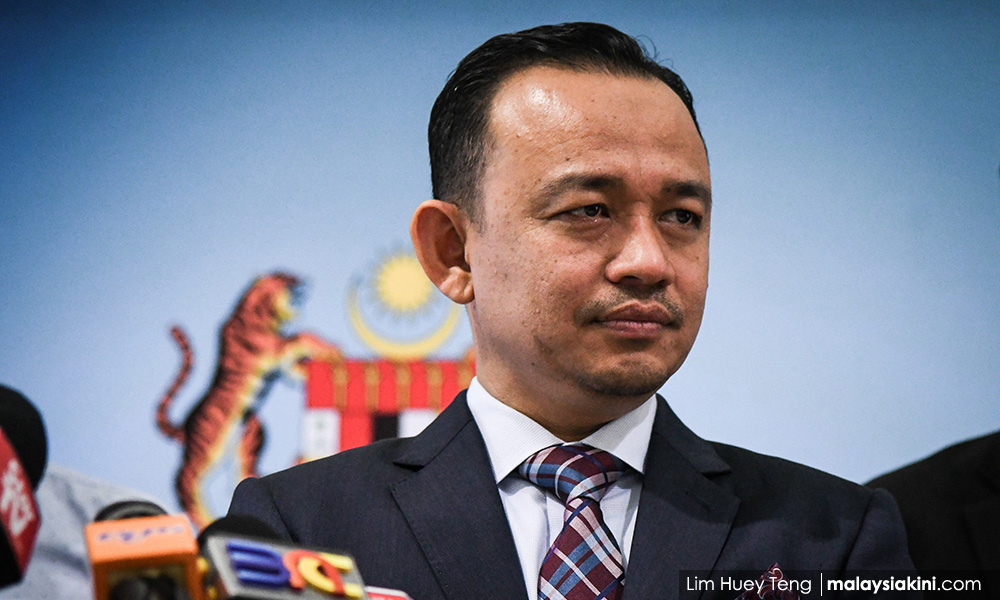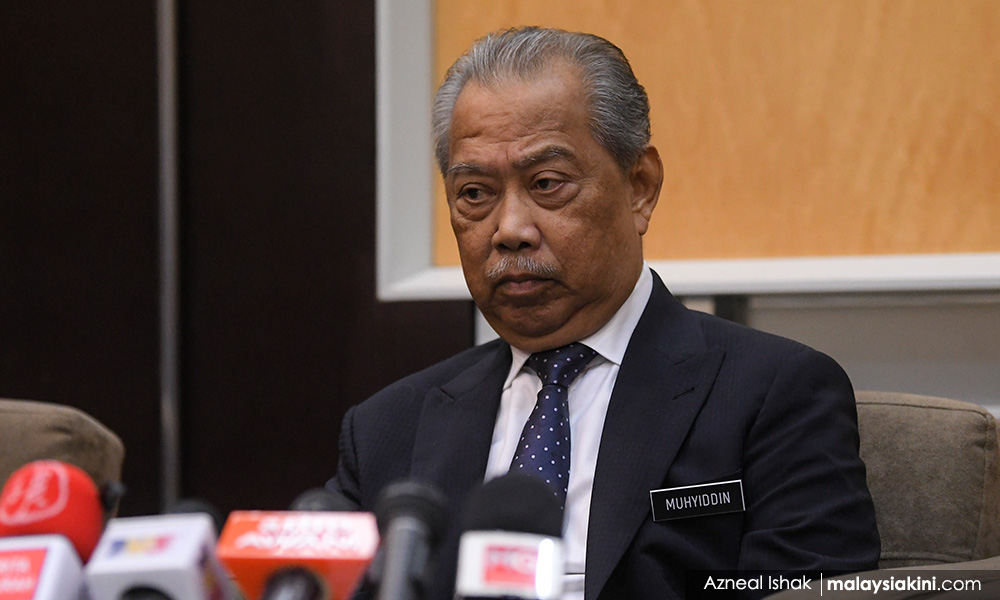
Instead of worrying about the colour of students’ shoes and a cashless system in schools, Education Minister Maszlee Malik needs to focus on improving education, the most vital ingredient to upgrade skills, increase incomes, raise living standards and dispel ignorance.
Maszlee’s task has been made much easier because there is already a comprehensive education blueprint which can be followed, and there is a mechanism for monitoring it. The new government, soon after it came into power, undertook to follow the blueprint.
In 2007, in a McKinsey and Company study on ways to improve a school system, after it investigated 25 of the world’s school systems, including ten of the top performers, I found the most succinct executive summary on education that I have seen anywhere. Here is the key point:
The experiences of these top school systems suggest that three things matter most:
1) getting the right people to become teachers,
2) developing them into effective instructors and,
3) ensuring that the system is able to deliver the best possible instruction for every child.
This is quite intuitive, but as the executive summary pointed out, changing what happens in the hearts and minds of children is no simple task. Some do it successfully, while others do not - and money alone is not the sole determinant of what works.
McKinsey suggested that the top school systems “demonstrate that the best practices for these three things work irrespective of the culture in which they are applied. They demonstrate that substantial improvement in outcomes is possible in a short period of time."
Also, it came to three conclusions, which are logical, precise and to the point:
1. The quality of an education system cannot exceed the quality of its teachers.
2. The only way to improve outcomes is to improve instruction.
3. High performance requires every child to succeed.
Clearly, the Malaysian education system is not anywhere near best practices and much needs to be done about education.
McKinsey went on to help Malaysia produce a 292-page, 12-year education blueprint 2013-2025 focusing on preschool to post-secondary education, which was unveiled in 2013, over five years ago when the current home minister Muhyiddin Yassin was the education minister. There was another one for higher education, but our emphasis here is on the more basic one where considerably more effort is required.

This comprehensive plan has laid out in detail what needs to be done to improve basic education in Malaysia. It identified six skills for students to excel globally - knowledge, thinking skills, leadership skills, bilingual proficiency, ethics and spirituality, and national identity.
It also details eleven shifts to transform the system, including equal access to quality education, proficiency in Malay and English, making teaching a profession of choice, and using ICT for efficiency, and transparency. A perusal of the blueprint is instructive for the understanding of the Malaysian education system and what can be done to improve it.
The report set targets and timelines for achievements and recommended a yearly assessment against the targets set.
What Maszlee has to do is to return to this education blueprint, instead of being sidetracked by irrelevant issues which have no bearing on the improvement of the education system whatsoever - there is no evidence to show that students performance improves if they wear black shoes or if there were a cashless system in schools.
He should be telling us what is happening in terms of achieving the objectives of the blueprint, and where we are now.
Let’s take one example - bilingual proficiency. One way of increasing English proficiency is to increase usage of the language, for instance by teaching Science and Maths in English. Dr Mahathir Mohamad, during his previous term as prime minister, changed the system, for which he was largely responsible as an education minister in the seventies, to provide for the teaching of Science and Maths in English.

This went on for several years until, ironically, his current home minister and then education minister Muhyiddin Yassin (above) under Najib Razak, overturned Mahathir’s move to allow teaching the subjects only in Malay and vernacular languages, turning back the clock.
With Mahathir as PM again, Maszlee should have no problem reverting to teaching Science and Maths in English, but he has not done so.
Let’s see what the blueprint says about bilingual proficiency: “ Every child will be, at minimum, operationally proficient in Bahasa Malaysia as the national language and language of unity, and in English as the international language of communication. This means that upon leaving school, the student should be able to work in both a Bahasa Malaysia and English language environment. The Ministry will also encourage all students to learn an additional language.”
What better way to improve English than to have some subjects taught in that language? As it is, students from national schools are severely handicapped in job applications by poor English, especially since many of them enrol in local universities where teaching continues in Malay and the language gap widens.
One more example. This is what the blueprint says about creating a national identity: “Every child will proudly identify as Malaysian, irrespective of ethnicity, religion or socio-economic status. Achieving this patriotism requires that every child understands the country’s history, and shares common aspirations for the future. Establishing a true national identity also requires a strong sense of inclusiveness. This can be achieved through not only learning to understand and accept diversity, but to embrace it.”
Tell us, Maszlee, in concrete terms what you are doing about achieving this, where you are falling short, and what you will do to overcome them. Where exactly are we at now, and what will we achieve in the remaining six years to 2025? And tell us what have we achieved in the first half or six years of the education blueprint.
Do we have enough qualified teachers to enable educational transformation now? If not, what are we doing and what are our targets? How far away are we from achieving them? One can ask similar questions about many other areas in education.
Maszlee has shown so far no indication that he is the person to run the most important ministry there is in terms of the future of all Malaysians. If he fails, it will set the country back tremendously by many years and stymie the much-needed change in the education system.
If he still shows no improvement and continues to focus on mosquito issues, instead of tackling the huge problems facing education, Mahathir must have no hesitation in removing him and putting in place someone else who can, even if that person is not from
********
kaytee notes:
(1) It has to be noted that Maszlee was never selected as the Education Minister when the cabinet was first formed. Mahathir himself took that portfolio for himself but backed off when there was a public outcry against a PM holding a ministerial portfolio besides the office of the prime minister. It was/is also a manifesto promise.
Thus Maszlee was a second-subsequent choice for the education ministry.
(2) While I agree with most of above mentioned blueprint I disagree on one point made by Gunasegaram, namely, the teaching of Science and Maths in English.
Learning a language consists of 3 elements, reading (the script), speaking and listening-comprehension.
The most difficult part is listening-comprehension, and alas, Science and Maths by themselves don't provide much opportunity to do so. Students will only learn (listen-comprehend) phrases like (i) solve this equation, (ii) integrate yadda yadda yadda with respect to x, (iii) protein, expansion, titrate, nitrate, chlorophyll, etc etc etc.
Better subjects to listen and comprehend a new language would be history, sociology, economics, geography, religion/morals, etc and of course the English language subject.
I have always suspect that Mahathir's aim in promoting English as the medium of instruction for Maths and Science (and probably his reason for initially seizing the Education Ministerial position) has been to kow-tim the vernacular schools' prowess in these two subjects, taught expertly in vernacular language. He can't stand Chinese school students excelling in those subjects.
Most fortuitously (especially for vernacular schools), both Malay and Chinese language teachers objected to Mahathir's proposal because the Malay and Chinese teachers did/do not feel confident they could teach effectively in English. The teachers were also supported by some parents.
I would advocate that English be taught in subjects which require use of the language in versatile expressions, eg. history, sociology, economics, geography, religion/morals, etc and of course the English language subject.
We also need to bear an important point in mind, that Mahathir (and other UMNO Education Ministers) has screwed up our education system before - don't let his hands touch the education ministry ever again. And yes, get Maszlee out and replace him with a person like Hanipa Maidin, Ramkarpal Singh or Liew Chin Tong.




Mamak knows it but just can't do anything about it.
ReplyDeleteDare I say it, I suggest Tok Pa the frog....
ReplyDeleteIt's not time to remove Maszlee from Education. It's way past time to remove him from the Cabinet altogether. I doubt he will be any good even as a University President. School headmaster is the max he can go.
ReplyDeleteThe only one who can remove the Education Minister is the PM. He also decides who are the Ministers/Dep. Ministers.
ReplyDeleteWho is P. Gunasegaram to say so? Criticize all you want about any Minister/Dep. Minister etc but it is not his place or anyone else to decide who should resign or who should fill the post.
Underperformance, sub par, useless, idiot, stupidity etc by those nominated by the PM should be held accountable back to the PM.
The PM should resign if he can't nominate capable individuals to be in his Cabinet or Ministers/Dep. Ministers. It only goes to show his own standard of leadership.